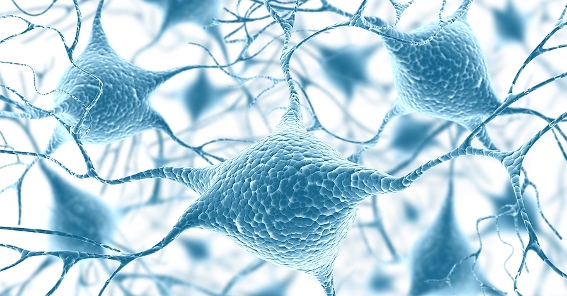
The idea our brains are "hard-wired" is changing thanks to new scanning techniques.
Until recently, we generally believed brain function was genetically inherited and fixed, but new research is gradually revealing the old gray matter has a lot more muscle than we thought.
If you’ve ever thought of yourself as not being good at math or more generally just lacking a little wattage upstairs, fear not, you can improve on that. To be sure, each of us is born with particular innate abilities – chances are Bill Gates is never going to play center for Real Madrid – but the old idea that our intelligence is limited by our genetic profile is gradually changing, along with the concept of intelligence itself.
Our genes are constantly turning on and off in response to our environment and with the right stimuli, definitely including diet, we can make ourselves “smarter.” An important example is provided by a 1999 study of London cabbies that measured the size of the hippocampus, the brain’s memory center. The result: the cabbies had significantly enlarged hippocampi and this increase correlated with job experience.
In other words, navigating the twisting streets of London had greatly increased the area in the cabbies’ brains assigned to memory – a key factor in assessing intelligence. This finding has been backed up by similar studies of musicians, meditation practitioners and stroke victims. Obviously effecting such major rewiring takes time and application but there is a lot we can do on a daily basis to improve mental sharpness.
Doing the basics
Health-wise, the most immediate things we can do to increase brain function include eating, sleeping and exercising effectively. No real surprises there. Fruit and vegetables, for example, are loaded with protective nutrients that improve overall clarity. Sleep is of course essential for mental rejuvenation and new research is showing it also allows the brain to better organize memories. Exercise improves blood and oxygen supply throughout the body, including the brain.
While all three are important, the impact of food nutrients has been gaining increasing attention. Pretty much everyone now knows about the brain-boosting benefits of the omega-3 fatty acids available in eggs and salmon or plant sources such as walnuts and flax oil. Likewise it is hard to miss the info on the antioxidant effects of pomegranates and berry fruits such as blueberries, as well as the resveratrol found in the skins of red grapes.
More people are also becoming aware of the importance of blood sugar management to brain function. While the brain runs on glucose, too much sweet stuff sets off a chain reaction that can lead to memory and mood glitches as well as the inevitable post-rush crash. If you can’t keep your hand out of the cookie jar, at least try to get in some fruit first. Dates make a sweet yet nutritious snack and an apple or banana will also help you feel full and resist cravings.
Adding in supplements
Whole foods should always be step one in any nutrition plan to enhance brain function but supplements can also play an important role – particularly if you’re already experiencing age-related decreases. The benefits of vitamins D and B12 have received a lot of coverage in recent years but other familiar supplements such as magnesium and folic acid are also effective for boosting neurotransmitter formation. Many people have also benefited greatly from fish and particularly krill oil.
Hormone balance is another area where supplementation can be useful. This is best looked at with a health professional but, for example, high or low thyroid function significantly affects neurotransmitter levels. One thing we can do ourselves to increase brain function is manage our stress levels to keep cortisol in check. High cortisol is known to damage brain cells over time. A glass of red wine can help with that but adaptogens such as ashwagandha are also a good choice, with a long history of use in Ayurvedic medicine.
A final area to look at if you experience brain fog or other general strangeness, particularly post-meal, is not supplements but additives. Most people have no obvious reaction to artificial sweeteners, preservatives or colorings, but for some an MSG-flavored meal can trigger swirling Van Gogh type vision and migraine headaches. Admittedly this is still an area of often heated debate but the evidence is gradually stacking up on the long-term effects of these excitotoxins.
